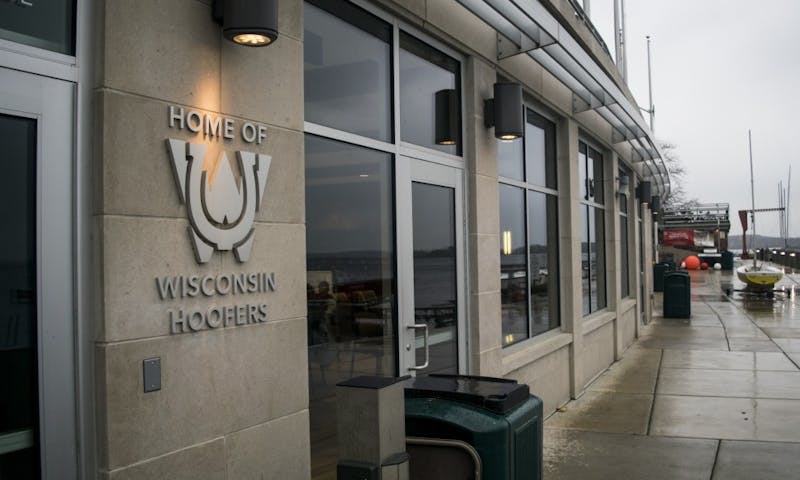
Student organization Hoofers starts a new program aimed at improving equity in the outdoors.
Image By: Cameron Lane-Flehinger
Student organization Hoofers starts a new program aimed at improving equity in the outdoors.
Image By: Cameron Lane-FlehingerWith students at the lead, Hoofer Ambassadors places equity and inclusivity at the center of the conversation about accessing the outdoors.
The program took shape over the spring semester, and is a product of efforts to bring more inclusion to Hoofers, UW-Madison’s outdoors club.
Hoofers, which was founded in 1931, contains six separate clubs that provide opportunities to learn outdoor skills and enjoy outdoor activities, such as climbing, hiking, riding, sailing, skiing, and more.
Hoofer Officer of Diversity and Inclusion Anna Nordin and Council President David O’Keefe worked together to develop the Hoofer Ambassador program.
They acknowledged that as UW-Madison’s official outdoors club, Hoofers has a responsibility to ensure equity in their programming. Although housed in Hoofers, the group seeks to make outdoor spaces, in general, more accessible and inclusive.
“We want to work to make the outdoors more accessible and our club spaces more inclusive to people who don’t feel welcomed in the outdoors,” Nordin said.
O’Keefe said the mission of Hoofer Ambassadors is not just about diversity — its core is the recognition that not everyone has or has had equal opportunities in accessing the outdoors.
In this mission, Hoofer Ambassadors addresses a history of exclusiveness and whiteness that has pervaded outdoor spaces and recreation since the founding of the country.
According to CNN, nearly 80 percent of people who visit federal parks are white, and the legacy of nature as a place of danger or injustice in slavery and migration history impacts how some minority identities continue to think about outdoor spaces.
Alongside the social barriers, economic and accessibility barriers also play a role in making outdoor activities harder to pursue, such as the cost of gear and difficulty of arriving in outdoor spaces.
James Edward Mills, a freelance journalist and member of the adjunct faculty at the University of Wisconsin Nelson Institute For Environmental Studies, has been involved with Hoofer Ambassadors in an advisory manner.
He discussed the legacy of white supremacy in the outdoor industry and stressed the need for direct, cultural-social intervention to correct the disparities of the past.
Much of Mills’ work as a journalist has focused on the representation and recognition of marginalized peoples in the outdoors and in the outdoor industry.
“A big part of that is raising awareness of the existing history and then to encourage people to see themselves as part of the overall narrative, and write themselves into it,” he said.
In a study of three major outdoor magazines, it was revealed that less than 2 percent of images depicting people included people of color.
While looking at old Hoofer photographs, Nordin noticed that images overwhelmingly depicted white, able-bodied men.
Hoofer Ambassadors emerged in a growing environmental justice movement, which advocates the involvement of all identities of people in environmental issues, and accessing the outdoors is part of that.
“What Hoofers Ambassadors is doing is critical to the overall goal of improving equity and inclusion in outdoor recreation across the board,” Mills said.
Much of the work done on Hoofer Ambassadors thus far has been developing an institutionalized structure that can continue after current leaders graduate and ensure the program’s lasting impact.
The group currently has about 25 committed members, and O’Keefe acknowledged there is still much to do.
“It’s been a learning process for us,” he said.
O’Keefe said Hoofer Ambassadors will collaborate with other campus organizations in hosting events that cater to people with limited camping or outdoor recreation experience.